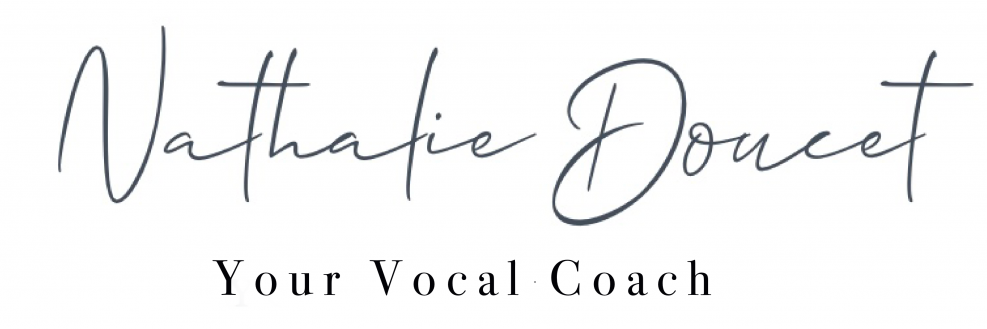When my season ended on July 10th, it was clear to me that I needed some rest. I was still performing at my normal level, but I was definitely on a low battery and using up some of my reserves (especially after the very intense and difficult period we have just gone through). My vacation came at the right moment! I started wondering why we are so afraid to say: “I need rest,” or better yet, why do we feel judged when we do say it? As I have been pondering this question, I feel like shedding the stigma attached to self-care. As artists, we are constantly creating, always performing at the highest level, and always learning. Our brains and creativity are engaged continuously, which is amazing but takes a lot of our energy. We also never want to stop working because we love what we do, but there is also an underlying fear that we will never be invited to work again if we refuse a job. As such, many of us are running around out there on low batteries!
Understandably, we need to make a living, and refusing work is not often an option-trust me, I know this all too well, but it is crucial to set priorities to stay at the top of our game. Like my mother used to say: “If you don’t rest now, later on, you will have to cancel much more because your body will give out, and then you will not be able to do anything at all”! But we don’t have to reduce our workload necessarily if we are mindful of the needs of body and mind.
Rest is defined as “freedom from activity or labor.” I love this grouping of words, “freedom of activity or labor”! It means that you disconnect, get out of your bubble, breathe and enjoy free time. As musicians, we spend so many hours practicing and trying to perfect everything we do. We spend countless hours studying, playing, singing, translating, reading, traveling, and much more. Because it is our passion, we can easily forget to take some downtime for ourselves, and finding the balance between work and life can seem impossible.
The Benefits of Resting
Resting allows time for recovery.
Musicians, like athletes, are incredibly disciplined and require long hours of practice and training. However, athletes have trainers who advise them and schedule regular rest days to help them recuperate from repetitive activity. A day to let their muscles rest and recuperate. Rest repairs the tissue that has been worked out to heal and grow, resulting in stronger muscles. It is during their “rest day” that they get the most significant benefits from their training.
Whether we are playing the piano, clarinet, or singing, we use our bodies and muscles in specific ways for an abnormal amount of time. Sometimes I don’t realize until I stop playing that I have surpassed what my body wanted to do that day. Resting is a path to healthier playing and singing. When we disconnect for a while, we refresh our bodies and mind. Planning practice sessions while incorporating days of rest and regular breaks will most likely lead to better results in the long run.
Reducing the risk of injury
Resting frequently and regularly will reduce the risk of developing an injury. Learning to listen to our bodies and take a break instead of “pushing through” can be the line between being a healthy musician and causing an injury that can destroy careers before they even start.
When I was a student, I was overzealous in my practice sessions, and while talking to a teacher of mine (and I won’t name names), I mentioned that I was experiencing some pain. Their advice was to “play through the pain.” I could not disagree more with this advice today, but as a young pianist, it seemed the most logical thing in the world to do, especially since it lined up with what I wanted to do: Keep practicing. Luckily, I did not develop a significant injury, but I am aware now that things could have gone another way. Somehow we accept this “pushing through” as part of our profession, and working non-stop is some badge of honor that we wear, but mental and physical fatigue can be very dangerous.
When we feel tired, pain, or if we feel like we have to push to produce sound, or to play a passage in a way that is unhealthy, it may be a sign to stop, take a break, go for a walk and clear the mind-better yet, call it a day, and do something else. When making a practice schedule, we should plan these breaks and making sure it is not just 15 minutes to run to get a coffee and get back to it (I am guilty of this much too often!). Frequent breaks to stretch the body or a brisk walk around the block can work wonders. Productivity will increase, and the body will be grateful.
Improving your performance
When the body and mind do not get enough rest, it can be near impossible to do our best work. Lack of rest will deplete our energy as well as our motivation. Overworking can also affect performance. When we are too tired, our stamina decreases and our agility and focus can become sluggish, and memorizing and performing become more challenging. Think about reading a book when we are too tired. We end up reading the same page repeatedly, and we don’t seem to retain any of the information we have just read. We don’t make any progress. The same goes for our practice sessions.
Having healthy resting periods and taking regular breaks throughout the day has the opposite effect. The appropriate amount of rest prevents fatigue, increases your energy level, improves your mental sharpness and memorization skills. Years ago, the common thought was you had to practice every day, but now we know better, and we can recognize the benefits of a rest day, and hopefully not feel guilty for taking (at least) one day a week!
“As important as it is to have a plan for doing work, it is perhaps more important to have a plan for rest, relaxation, self-care, and sleep.”
― Akiroq Brost
What does a rest day look like for you?
It depends on the person doing the resting and what their body and mind need. Just like the athlete who takes a break from intense training, the musician takes a break from playing or singing, but a rest day can still be productive. You can work mentally by doing research, translating texts, or doing some mental practice and visualizations. All of which can be highly beneficial to your regular practice routine.
Rest for a musician can also be found in regular exercise, working out the body and mind. Yoga, running, swimming, Alexander Technique, Feldenkrais can all be great ways of relieving stress and keeping your body and mind healthy. Many of my students are into running and Yoga, and I can usually tell by how they cope with stress if they let their healthy habits fall by the wayside. They become more tense, stressed and their mood is more frantic. Regular movement and taking care of yourself will prevent muscle tension buildup, and the mental benefits are countless.
Yoga: Yoga improves strength, balance, and flexibility. It relaxes you, helps you sleep, and generally improves your mood by helping you manage stress.
Running and walking: Helps improve your cardiovascular fitness, improves stamina, and is excellent stress relief.
Swimming: Strengthens core muscles and increases lung capacity, and it is a full-body workout that is easier on the joints. It also boosts moods and relieves stress.
Alexander Technique: Helps musicians release undue tensions in their bodies. It can help you get more fluidity and energy if you are feeling tense and rigid.
Feldenkrais: A revolutionary body awareness method, Feldenkrais guides movements and expands perception, increases awareness, and develops more natural ways of moving, resulting in gaining ease, efficiency, and comfort in your performances.
Of course, a good old-fashioned day of letting go and just reading a book, sitting outdoors, walking in nature, playing with your dog, or watching a movie, is also a great way of resting. Let’s face it, it is one of my favorite ways of relaxing, and there is nothing wrong with that!
The idea is not to play less or practice less, but to be mindful of your work and life balance. You can drill your practice sessions until you can’t see straight anymore, but eventually, your body will refuse to comply with your demands.
“A decline in performance should lead to a search for its cause and to a focus on the quality of your recovery. Remember, often doing less is more powerful than training more.”
― Rountree Sage, The Athlete’s Guide to Recovery: Rest, Relax, and Restore for Peak Performance
This summer, I rested by spending quality time with my husband and our two dogs and traveling home (to Canada) to see my family after three years. Typically, I would blend this with some work by teaching at programs, coaching, or giving some classes, but I needed the rest…there…I said it! As the year starts again, I hope we all schedule more rest days into our hectic lives to be more productive and successful in everything we do.
Be on the lookout for more content. I am still in “resting mode,” but I will be back with some interesting interviews, editorials, and tips soon!



One thought on “Incorporating Rest As An Essential Part Of Your Practice Routine”